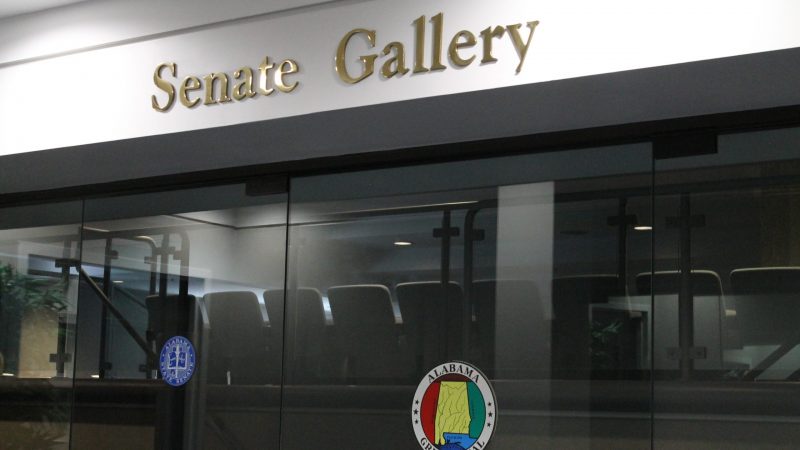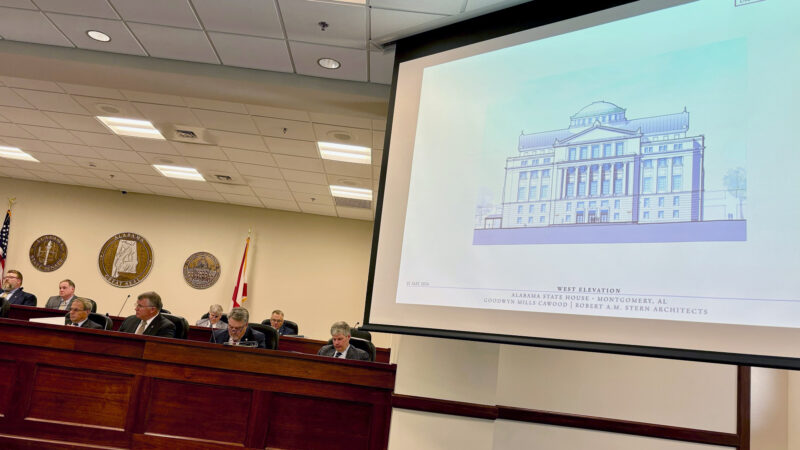Judge Approves Jefferson County’s Plan to Exit Bankruptcy
Federal bankruptcy judge Thomas Bennett has confirmed Jefferson County’s bankruptcy plan, paving the way for the county to exit its $4.2 billion bankruptcy in December. Most of that debt was linked to corruption, mismanagement and bad deals around the county sewer system.
Thursday’s ruling ends two years under municipal bankruptcy, the second largest in U.S. history after Detroit’s filing earlier this year. County leaders say the confirmation allows Jefferson County move past its fiscal turmoil.
The plan calls for creditors to give up about $1.5 billion in concessions. Meanwhile, sewer customers will see their rates rise for 40 years. Businesses already took a 3.49 percent increase on November 1. Then for the next four years business and residential customer rates go up 7.89 percent. Sewer rates rise by 3.49 percent a year after that.
Jefferson County Commission President David Carrington is pleased the court approved the plan. He says the plan’s viability is shown through the fact the county was able to find investors to buy almost $1.8 billion in refinanced debt.
“They didn’t do it on a lark,” said Carrington. “They studied it. They understood it. They asked difficult questions.”
Jefferson County spent almost 26 million dollars in fees to lawyers and other groups through the process, but Carrington says it was worth it. After the county officially exits bankruptcy December 3rd, it can focus on economic development.
“What the county needs is more jobs, more business. That will stimulate a growth in population and it’ll stimulate housing developments and so we’re excited to move into the next phase of this commission,” Carrington said.
The judge turned back challenges from two groups of sewer customers, but they could appeal.
Critics say the plan could set things up for more problems down the line and point out the county’s debt payments rise dramatically after 10 years. Leaving the potential for more rate increases or a return trip to the bankruptcy court.
Andreas Rauterkus, finance professor at UAB, wasn’t surprised the judge approved the plan. But he says that jump in payments is concerning.
“For the county to be able to pay off or make the debt payments 10, 15, 20, 30, 40 years from now…there’s a lot of uncertainty there,” said Rauterkus.
He says it’s unlikely the county will be able to refinance under more favorable terms in 10 years, even with a better credit rating, because interest rates will probably be higher. Rauterkus also says the county may have difficulty attracting new sewer customers through economic development because of higher bills. He points to the future Interstate 22 which could be completed next year.
“A lot businesses in particular are gonna say I can just build in Walker County. I have the exact same connection to the interstate system but I can do it at a much lower cost,” said Rauterkus.
While much of the plan exists in the complex the world of municipal finance, those rate increases are what the general public will see. Dan Jones, owner of University Laundromat in Birmingham, is not happy about that.
Jones estimates says the rate increases that have already gone into effect for business will cost him an extra $600 a year. That eats into already thin profit margins or forces him to raise prices.
“That’s the last thing I want to do,” said Jones.
Jones doesn’t believe residents should have to pay higher rates given that corruption was a contributor to the massive bankruptcy.
“I deal in quarters down here. So you get talking it takes a lot quarters to make a billion dollars, but they’re trying to get it back a quarter at time from us and that’s not right,” Jones said.
The slogan for Jones’ laundromat is “wash, rise, repeat.” Jefferson County has been through the financial wash and rinsed off through bankruptcy. The question now is if in ten years it will repeat.
~ Andrew Yeager, November 22, 2013
Alabama to begin working with a consulting company that’s under criminal investigation
McKinsey & Company, an international consulting business, will help the state of Alabama develop a new strategic economic growth plan. The company is undertaking that project, while also dealing with a probe into whether it engaged in a criminal conspiracy.
‘Stupidity of politics’: Medicaid expansion effort dies in Mississippi
Mississippi lawmakers couldn’t come together to pass a bill that could have expanded Medicaid for thousands of residents.
This spiky-stemmed invasive grass is taking over Alabama
Classified as one of the worst weeds in the world, cogongrass aggressively crowds out native species and costs Alabama landowners tens of millions of dollars in lost revenue.
Gambling bill in doubt with three days left in the legislative session
Alabama lawmakers are coming down to the finish line for this year’s legislative session. Many bills await passage, but perhaps the biggest one up in the air is a lottery and gambling bill.
Pro-Palestinian demonstration draws counter-protest at University of Alabama
Students gathered demanding the school call for a permanent and immediate ceasefire and to push the school to sever ties with defense contractor Lockheed Martin.
A new Statehouse and related projects will cost about $400 million
The Alabama Legislative Council, a 20-member panel comprised of legislative leaders and their appointees, approved the construction of the new Statehouse last year. The panel was given an update on the project on Wednesday.







